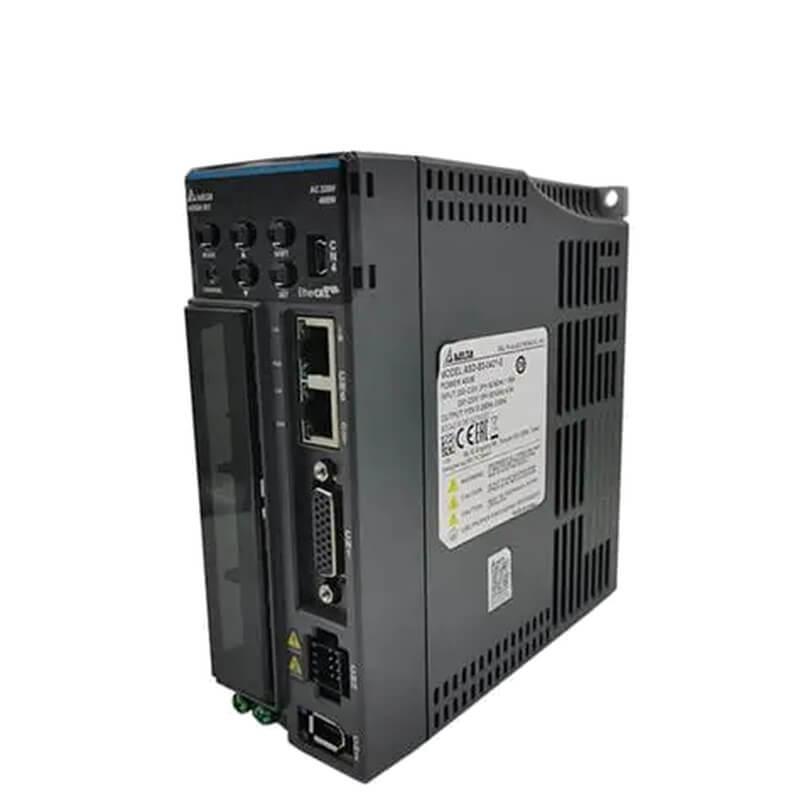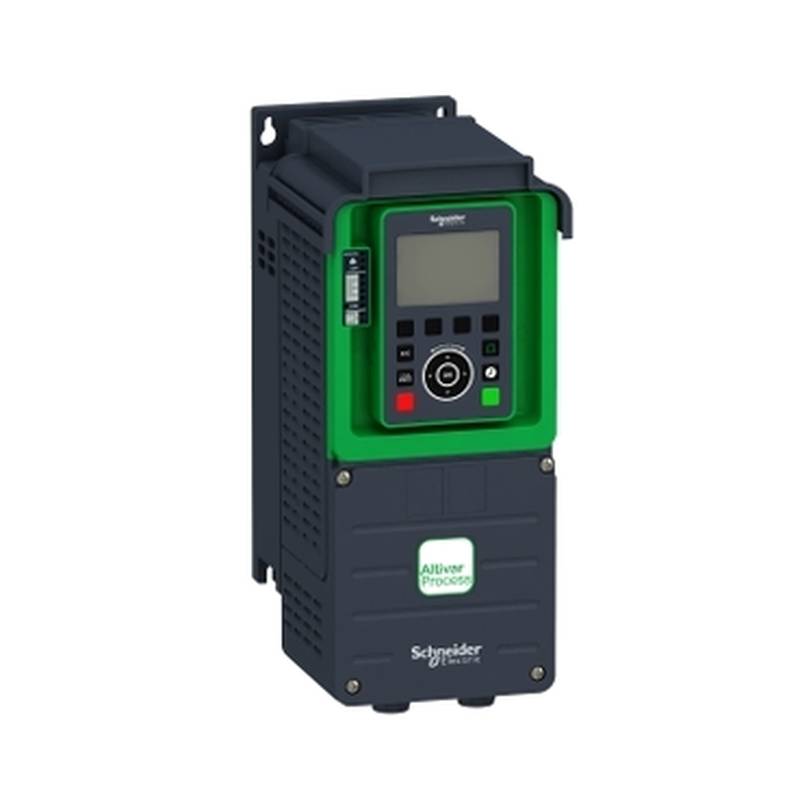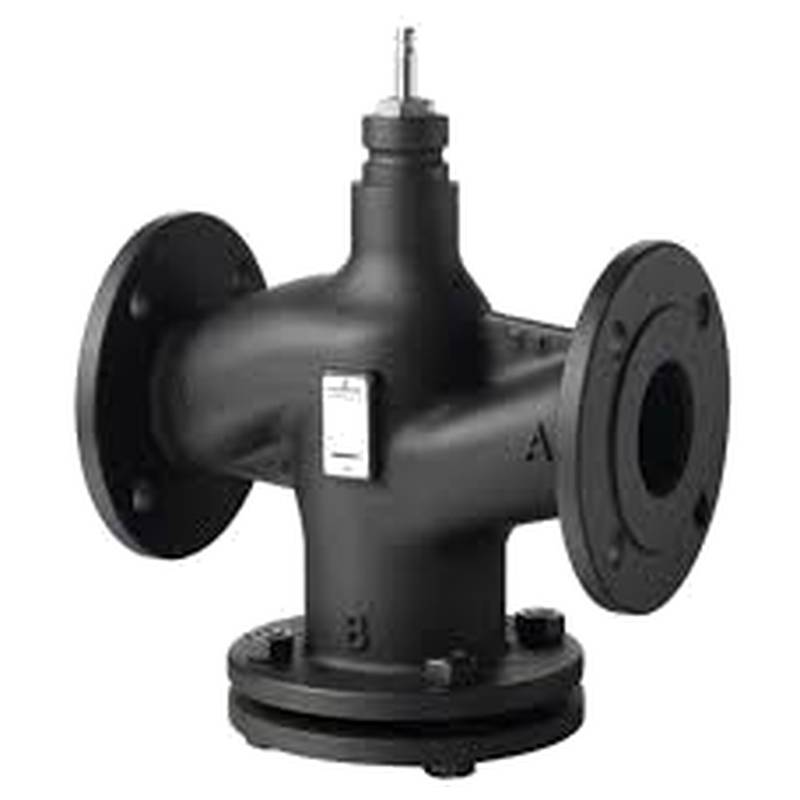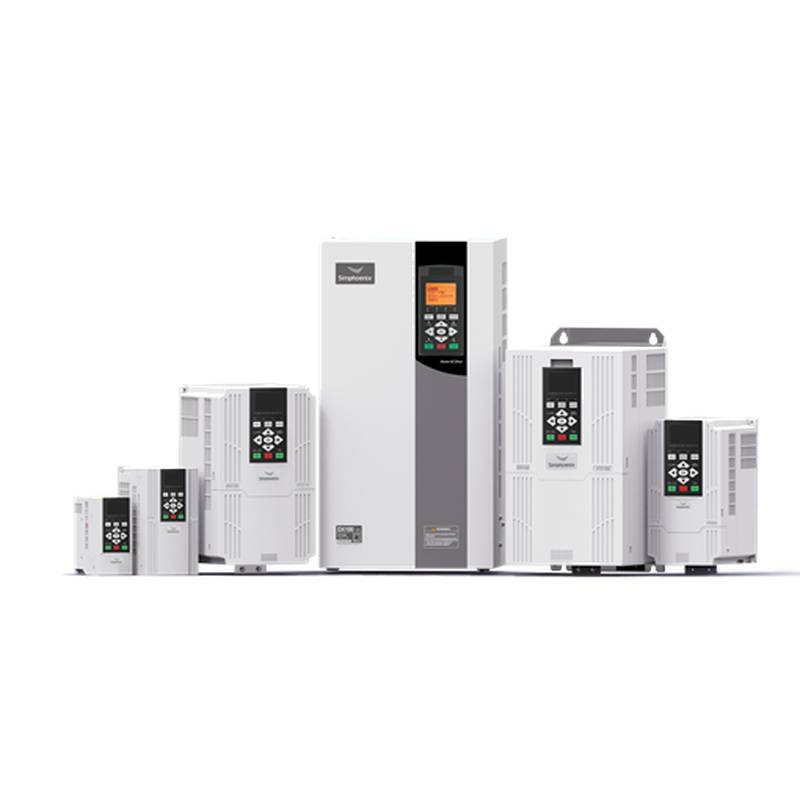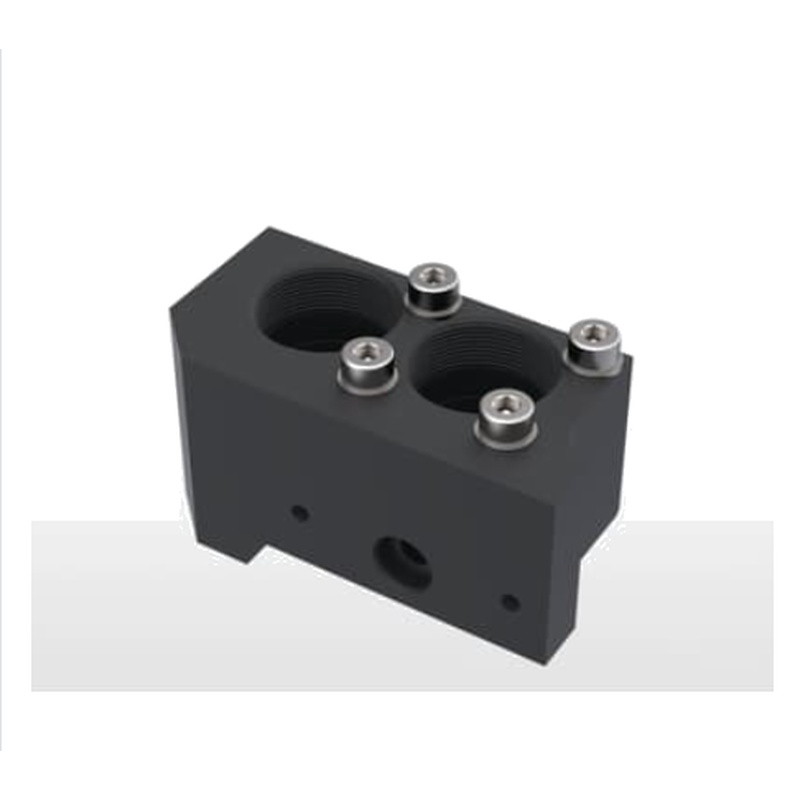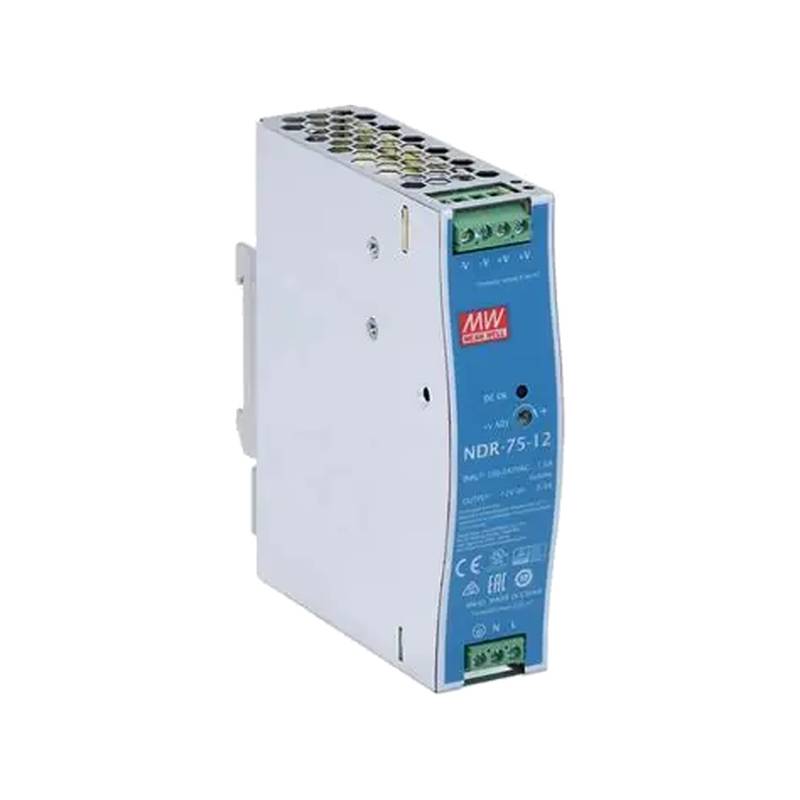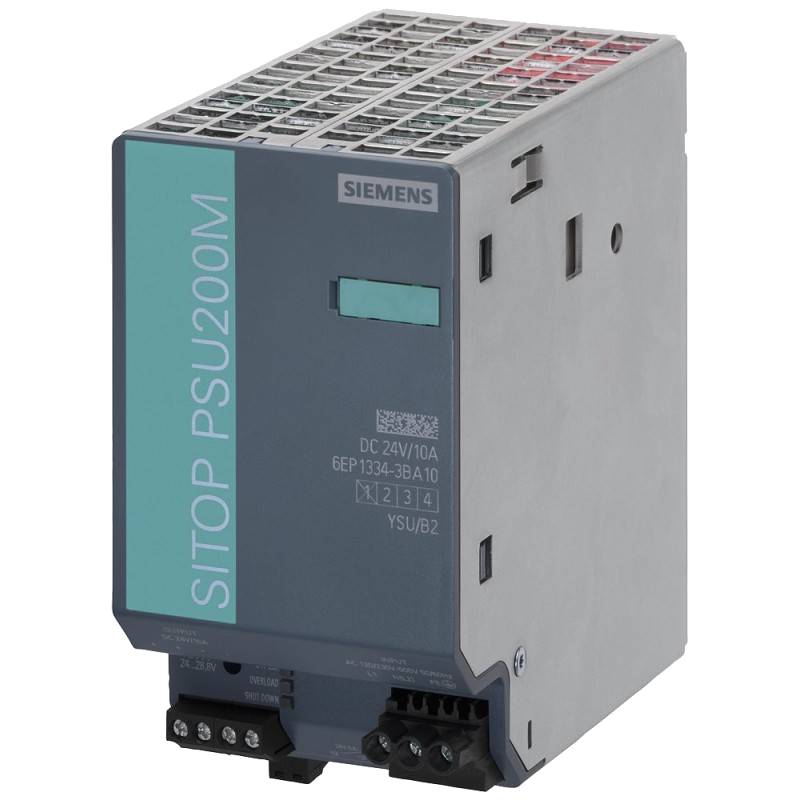
The Delta ASD-B3 High-Efficiency Servo Drive represents a significant advancement in motion control technology, delivering superior performance, precision, and efficiency for a wide array of automation equipment. This third-generation servo system boasts a user-friendly interface and advanced control algorithms designed to optimize production processes and enhance output value. Key advantages include its high responsiveness, precise positioning capabilities, and robust safety features, making it an ideal choice for demanding industrial applications.
Product Specifications
| Specification | Value |
| :----------------------- | :------------------------------------------------------------------------------------------------------------------------------------------------------------------------- |
| Series | ASDA-B3 |
| Response Bandwidth | Up to 3.1 kHz |
| Positioning Precision | Over 16.7 million pulses per revolution (24-bit encoder) |
| Maximum Motor Speed | 6000 rpm |
| Maximum Torque | 350% of rated torque |
| Settling Time Reduction | 40% compared to previous models |
| Communication Protocols | CANopen, EtherCAT, RS-485, Modbus, DMCNet |
| Safety Function | Safe Torque Off (STO), SIL-2, PL-D |
| Input Voltage | 220 VAC (Single-phase/Three-phase), 200-230 VAC (Single-phase/Three-phase) |
| Encoder Resolution | 24-bit incremental and absolute encoders |
| Control Modes | Pulse Train, Analog Input, Fieldbus (CANopen, EtherCAT), PR mode, RS-485, Modbus, DMCNet |
| Auto-Tuning | Yes |
| Vibration Suppression | Yes |
| Load Tolerance | Increased, allowing for better control resolution and system stability. Higher response bandwidth for the same load conditions. Up to 70 times inertia ratio supported. |
| Compact Design | Reduced footprint for both drives and motors (up to 40% smaller compared to previous generations). |
Core Features & Market Positioning
The Delta ASD-B3 servo drive distinguishes itself in the competitive automation market through several key innovations and performance enhancements. Its market positioning is centered on delivering high-efficiency, user-friendly, and stable motion control solutions that boost production efficiency and output value. A significant advantage is its remarkably high responsiveness, reaching up to 3.1 kHz, which is a substantial leap from the 1 kHz of its predecessor. This elevated bandwidth, coupled with a 40% reduction in settling time, directly translates to increased productivity and shorter cycle times in automation equipment.
Furthermore, the ASDA-B3 series incorporates advanced motor control algorithms and increased processing power, enabling superior performance and stability. The drive supports 24-bit encoders, providing exceptionally high positioning precision with over 16.7 million pulses per revolution, ensuring meticulous control over every movement. The inclusion of a built-in Safe Torque Off (STO) function, compliant with SIL-2 and PL-D safety standards, enhances operational safety without requiring additional modules. Delta's commitment to user-friendliness is evident in its auto-tuning feature and intuitive ASDASoft GUI, which significantly shorten commissioning and troubleshooting times. This combination of cutting-edge performance, enhanced safety, and simplified operation positions the ASD-B3 as a leading solution for a wide range of demanding automation tasks.
Key Application Scenarios
The versatility and high performance of the Delta ASD-B3 servo drive make it exceptionally well-suited for a diverse range of industrial applications where precision, speed, and reliability are paramount. Its advanced motion control capabilities are leveraged in:
Machine Tools: Ensuring precise and repeatable movements for cutting, milling, and grinding operations, enhancing part accuracy and surface finish. Electronics and Semiconductor Manufacturing: Facilitating high-speed, high-precision assembly, pick-and-place operations, and wafer handling, critical for micro-component manipulation. Industrial Robots: Providing the dynamic response and precise control required for complex robotic movements in assembly, welding, painting, and material handling. Printing and Packaging Machinery: Enabling accurate registration, high-speed dispensing, and precise motion control for efficient and consistent production of printed materials and packaged goods. Textile Machinery: Driving intricate movements for weaving, embroidery, and fabric handling, ensuring high-quality textile production. Warehousing and Logistics: Powering automated guided vehicles (AGVs), conveyor systems, and robotic palletizers for efficient material flow and storage. Medical Equipment: Offering the high precision and reliability needed for automated diagnostic, surgical, and laboratory equipment.
The ASDA-B3 series is designed to optimize production efficiency and output value across these sectors, addressing the growing demand for automation that requires sophisticated motion control.
Practical System Integration Guidance
Integrating the Delta ASD-B3 servo drive into an automation system requires careful attention to wiring, parameter configuration, and communication setup. The drive supports multiple communication protocols, including EtherCAT, CANopen, and RS-485, allowing for flexible integration with various PLCs and industrial networks.
Wiring: Proper wiring is crucial for performance and safety. Power and motor output terminals should be securely tightened to prevent fires. Grounding must comply with local electrical standards, typically requiring a Class 3 ground with resistance not exceeding 100Ω to prevent electric shock or fire. Signal cables should be kept separate from power cables by at least 30 centimeters (11.8 inches) to avoid interference. The encoder feedback cable has a maximum length of 20 meters (65.62 feet).
Parameter Configuration: The ASDASoft GUI simplifies commissioning and troubleshooting. Key functions include auto-tuning for optimized operation without manual adjustments, gain adjustment for adapting to varying inertia, and vibration suppression for smoother motion. The drive supports up to 99 PR paths for flexible motion command planning in PR mode.
Communication Setup: When using fieldbus communication like EtherCAT, ensure the network configuration is correctly set up, with the ASDA-B3 supporting high communication speeds up to 8 kHz for EtherCAT. Remote I/O modules can be connected with a single wiring, and the system can support up to 65,536 axes in a distributed I/O configuration.
Operation and Risk Mitigation
Safe and effective operation of the Delta ASD-B3 servo drive hinges on understanding its safety features and adhering to operational guidelines to mitigate risks. The drive is equipped with a built-in Safe Torque Off (STO) function, which is a critical safety measure that prevents unintended motor startup by disabling the motor's torque. This function achieves a Safety Integrity Level 2 (SIL-2) and Performance Level D (PL-D), ensuring a high degree of operational safety in accordance with international standards.
Risk Mitigation: Electrical Hazards: Always disconnect power before performing any installation, wiring, or maintenance. Ensure proper grounding to prevent electric shock and fire hazards. Verify that all terminal screws are securely tightened. Mechanical Hazards: Never approach rotating parts while the motor is running. Ensure emergency stop equipment is connected and functional before operation. Properly match drive and motor power ratings to prevent damage and injury. Environmental Conditions: Operate the drive within its specified temperature and humidity ranges. Avoid environments with corrosive gases, flammable substances, or excessive dust. Troubleshooting: The ASDASoft GUI aids in identifying and resolving issues. Common fault codes and their solutions are detailed in the user manual. Delta's technical support is available for complex problems.
Error Codes: While specific error codes are detailed in the user manual, common issues often relate to overcurrent, overvoltage, undervoltage, motor overload, or encoder feedback errors. Addressing these promptly through parameter adjustments or system checks is essential for maintaining operational integrity.
Scalability & Long-Term Value
The Delta ASD-B3 servo drive offers significant long-term value through its inherent scalability, compatibility, and integration capabilities, particularly in the context of Industry 4.0 and the Industrial Internet of Things (IIoT).
Compatibility and Upgrade Paths: The ASDA-B3 series is designed for seamless integration and offers backward compatibility with previous Delta servo generations, including the ASDA-A2 and ASDA-A3 series motors. This compatibility simplifies upgrades and allows for phased implementation of advanced motion control solutions without requiring a complete system overhaul. The drives also support a wide range of ECM-B3 and ECM-A3 series servo motors, providing flexibility in system design and component selection.
IIoT and Digital Integration: Delta is actively promoting its IIoT-ready solutions, and the ASDA-B3 servo drive plays a key role. It supports open communication standards like OPC UA, enabling seamless data exchange with higher-level control systems and cloud platforms. This facilitates advanced data analytics, predictive maintenance, and remote monitoring, contributing to the development of smart manufacturing environments. The ability to integrate with fieldbus systems like EtherCAT and CANopen further enhances its connectivity and allows for sophisticated multi-axis control and distributed I/O configurations. The drive's enhanced processing power and advanced algorithms also contribute to its future-proofing, ensuring it can handle increasingly complex automation tasks as industrial demands evolve.
Frequently Asked Questions (FAQs)
Q1: What are the key advantages of the Delta ASD-B3 servo drive?
The ASDA-B3 offers superior performance with a 3.1 kHz bandwidth and 40% faster settling time. It provides high-precision positioning through its 24-bit encoder. Enhanced safety features include built-in STO, meeting SIL-2/PL-D standards.
Its user-friendly design simplifies setup with auto-tuning and an intuitive GUI. This combination boosts productivity and reduces operational costs significantly.
The compact size of both drives and motors minimizes space requirements in control cabinets. Its advanced control algorithms ensure stable and efficient operation across various loads.
Q2: How does the Delta ASD-B3 servo drive ensure high positioning accuracy?
It utilizes a 24-bit absolute encoder, delivering over 16.7 million pulses per revolution. This allows for extremely fine-grained control over motor position and movement. The drive's closed-loop control system constantly monitors and adjusts motion.
This high resolution ensures that even minute deviations are detected and corrected in real-time. Such precision is vital for applications demanding exact placement, like in automated assembly or intricate machining.
The system's advanced algorithms and fast feedback loop further contribute to maintaining accuracy under dynamic conditions. This ensures consistent performance and repeatability for critical tasks.
Q3: What are the primary applications for the Delta ASD-B3 servo drive?
The ASD-B3 is ideal for machine tools, electronics, and semiconductor manufacturing. It excels in industrial robotics and automated assembly lines. Applications also include printing, packaging, and textile machinery.
It is also utilized in warehousing automation and specialized medical equipment. Its versatility supports diverse industrial automation needs requiring precise motion control.
The drive's ability to handle complex motion profiles makes it suitable for dynamic and high-speed operations across these sectors. This ensures optimized production efficiency.
Q4: Can the Delta ASD-B3 servo drive be integrated with existing automation systems?
Yes, the ASDA-B3 is designed for flexible integration. It supports major industrial communication protocols like EtherCAT, CANopen, and RS-485. This facilitates connection to various PLCs and control networks.
The drive is also backward compatible with previous Delta servo motor series (A2, A3, B2). This allows for easier upgrades and system expansion. It also works with ECM-B3 and ECM-A3 motors.
Remote I/O modules can be easily connected, enabling scalable and distributed control architectures. This adaptability ensures it fits into diverse existing infrastructures.
Q5: What safety features are included in the Delta ASD-B3 servo drive?
A key safety feature is the built-in Safe Torque Off (STO) function. This function prevents unintended motor startup by disabling torque. It meets SIL-2 and PL-D safety integrity levels.
The STO functionality reduces the risk of accidents during maintenance or emergencies. It simplifies safety system design by eliminating the need for external safety relays in many cases.
Other safety aspects include robust protection against overcurrent, overvoltage, and thermal overload. These ensure reliable operation and protect both the drive and connected equipment.
Q6: How does the auto-tuning function of the ASD-B3 benefit users?
The auto-tuning function significantly simplifies the setup process. It automatically optimizes servo parameters for the connected motor and load. This eliminates the need for complex manual tuning procedures.
Users can achieve optimal performance quickly and easily. This reduces commissioning time and labor costs for automation projects. It ensures consistent performance regardless of operator expertise.
This feature is particularly beneficial for applications with varying loads or inertia. It allows the drive to adapt dynamically, maintaining precise control and stability.
Q7: What is the significance of the 3.1 kHz response bandwidth?
The 3.1 kHz bandwidth represents a substantial increase in responsiveness over older models. This allows the drive to react much faster to command changes. It leads to smoother motion and higher accuracy.
This enhanced responsiveness is crucial for applications requiring rapid acceleration and deceleration. It directly contributes to reduced settling times and increased productivity on the production line.
Higher bandwidth also improves the system's ability to suppress vibrations. This results in more stable operation and better control performance, especially in dynamic applications.
Q8: How does the ASDA-B3 support IIoT and Industry 4.0 initiatives?
The ASDA-B3 supports open communication standards like OPC UA. This allows seamless data exchange with IIoT platforms and cloud systems for analytics. It facilitates remote monitoring and predictive maintenance.
Its compatibility with fieldbus protocols like EtherCAT enables sophisticated networking. This supports the development of connected, intelligent automation systems. It allows for real-time data acquisition.
The drive's advanced capabilities support smart manufacturing goals. It enables greater integration, data utilization, and overall efficiency in modern industrial environments.
Q9: What are the advantages of the ECM-B3 series servo motors when paired with the ASDA-B3 drive?
The ECM-B3 motors offer improved power density and stability. They have a reduced footprint, up to 40% smaller than previous generations. This allows for more compact machine designs.
These motors provide increased torque (up to 350%) and higher maximum speeds (6000 rpm). They are designed to work seamlessly with the ASDA-B3 drive's advanced control algorithms.
The combination ensures optimized performance, energy efficiency, and enhanced operational reliability. They are engineered to complement the ASDA-B3 drive's high-performance capabilities.
Q10: Where can I find documentation and support for the Delta ASD-B3 servo drive?
Detailed user manuals, datasheets, and application notes are available on Delta's official website. These resources cover installation, wiring, parameters, troubleshooting, and maintenance.
For technical assistance, users can contact Delta's authorized distributors or their customer service centers. Online forums and technical support portals may also provide valuable information.
The ASDASoft software, used for configuration and commissioning, also includes help features. Consulting these resources ensures proper setup and operation of the servo drive system.














